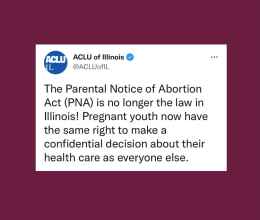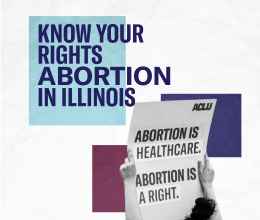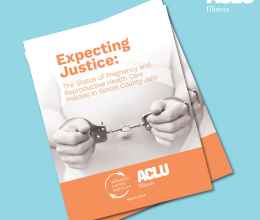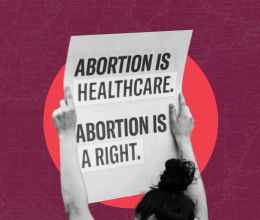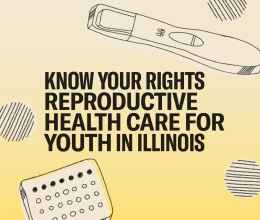
On Thursday, April 14th, lawyers for the American Civil Liberties Union of Illinois Reproductive Rights Project will appear in the Illinois Appellate Court (First Judicial District) in Chicago to argue the case of Hope Clinic v. Adams. Our clients, who provide reproductive health services, contend that the Parental Notice of Abortion Act of 1995 poses a significant threat to the health and well-being of vulnerable teens in Illinois and violates the Illinois Constitution. In March of 2010, the Cook County Circuit Court granted the motion of Attorney General Madigan to dismiss the case, although the court kept in place the injunction barring enforcement because of the serious harm enforcement of the parental notice law would inflict on pregnant teens.
In preparation for the oral argument, Lorie Chaiten, Director of the ACLU of Illinois Reproductive Rights Project issued the following statement:
On behalf of vulnerable Illinois teens, we welcome the opportunity to present this case to the appeals court. Illinois’ Parental Notice of Abortion Act presents a clear danger for many young women in our state who have a credible fear of abuse or neglect if they reveal an unintended pregnancy to a parent. In some sad cases these young women already have seen abuse and neglect in their homes. This danger has led major medical organizations across the nation to oppose forced parental involvement laws. These groups understand that the Illinois Parental Notice of Abortion Act, and like measures around the nation, harm, rather than advance, the health and safety of young women.
We also look forward to advancing our arguments about the irrationality inherent in this law. Under Illinois law, pregnant minors can make all other medical decisions – even those involving far greater risk than a safe, legal abortion – without involuntarily involving a parent or being forced to go to court. A pregnant minor can decide to continue her pregnancy and give birth, can consent to far riskier medical care including a cesarean section and can place her child for adoption, all without involving a parent. The Illinois Constitution does not permit the singling out of a single medical procedure for such exceptional – and discriminatory – treatment.
Finally, the law impermissably furthers long standing stereotypes about women that simply are not tolerated by the Illinois Constitution, which contains an explicit prohibition against sex discrimination. Again, the law permits a young woman to make all of her own medical decisions – as long as she conforms to the view that women should put childbearing and motherhood above all else. It is only when a young woman decides not to conform to this stereotype that she is forced to involve a parent. The Gender Equality Clause in the Illinois Constitution does not permit the application of such stereotypes in this fashion.
